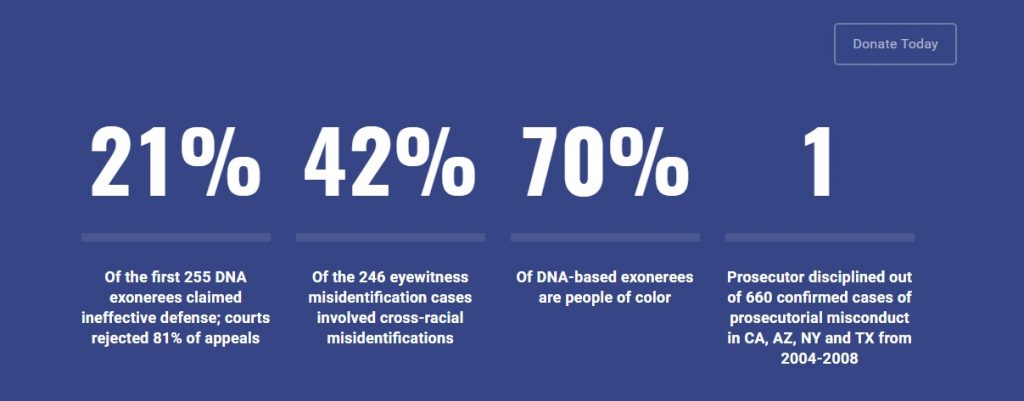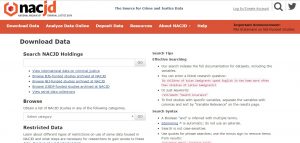Founded in 1992 with only three attorneys on staff, Peter Neufeld and Barry Scheck have made a profound impact on the criminal justice system in the United States over the past 25 years. Explore their 25th anniversary interactive summary online and if you are interested, see how you can help.
As Craig Watkins, former Dallas District Attorney, stated:
Everybody thinks the civil rights struggle is over. It’s not. There’s a new civil rights struggle, dealing with criminal justice.
In 1992, there were three attorneys on staff of this project affiliated with the Cardozo Law School, the Cardozo Law School clinic trained 20 students that year, there were ten exonerations by 1992, and zero states with post-conviction DNA statutes in 1992.
To date, there have been 349 exonerations using DNA technology, there are 50 states with access to post-conviction DNA testing, 25 states that record interrogations, 20 states with improved eye-witness procedures, 32 states with wrongful conviction compensation laws, 100+ laws have been passed so far to prevent wrongful conviction and support exonerees, 80 staff members of the Innocence Project, and 550 Cardozo Law School students trained since 1992.



